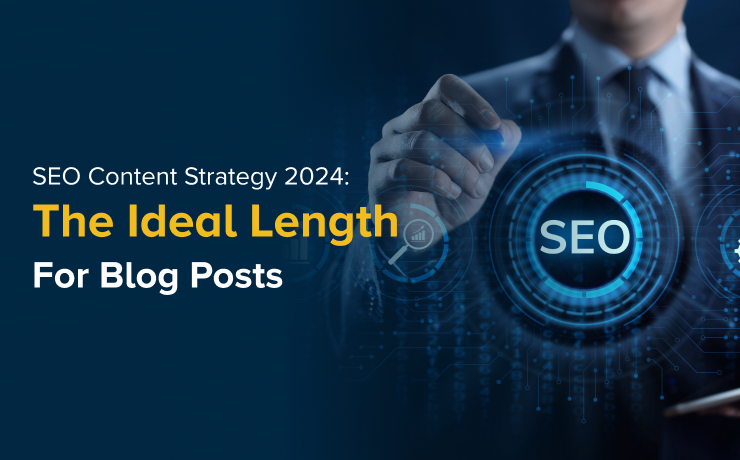Understanding the Importance of Content Length in Digital Marketing
Introduction
The rise of digital marketing has brought about an era of content creation, where businesses, influencers, and writers constantly produce material for their online platforms. One crucial aspect of this process often overlooked is the length of content. This article offers a comprehensive understanding of the importance of content length in digital marketing. It will delve into why content length matters, how it impacts SEO, and how to optimize your content length for different types of content.

Why Content Length Matters
Content length is a critical factor in digital marketing as it directly influences how both search engines and users perceive your content. Here’s why:
Holds User Attention
The length of your content can significantly affect how long users stay on your page. Shorter content might be easy to consume, but longer content has the potential to hold users’ attention for longer periods, increasing the chance of conversion.
Influences Social Shares
Content length can also influence the number of social shares your content gets. According to a study by BuzzSumo, long-form content tends to get more social shares than short-form content.
Impacts SEO
Search engines like Google favor longer content. SerpIQ conducted a study that found that the top 10 results for any keyword in Google are usually over 2,000 words long. This shows that longer content tends to rank higher in search engine results pages (SERPs).
Demonstrates Expertise
Lastly, longer content can help demonstrate your expertise in a particular subject. Detailed, long-form content shows that you have a deep understanding of the topic, which can help build trust with your audience.

Understanding the Role of SEO in Content Length
Search engine optimization (SEO) plays an integral part in determining content length. Here’s why:
Keyword Usage
Longer content gives you more opportunities to naturally incorporate primary and secondary keywords. This can improve your content’s visibility on search engines.
Backlinks
Longer, comprehensive articles are more likely to earn backlinks from other websites. Backlinks are a critical ranking factor in Google’s algorithm.
Engagement Metrics
Longer content can improve engagement metrics like dwell time (the time a user spends on your page). Search engines use these metrics to gauge the value of your content.
Featured Snippets
Google often uses long-form content for featured snippets, the information boxes that appear at the top of some SERPs. These snippets can significantly increase your page’s visibility and click-through rate.

Optimizing Content Length for Different Platforms
Different types of content and platforms require different lengths. Here’s how to optimize your content length:
Blog Posts
According to a study by Medium, the ideal blog post length is about 1,600 words, approximately a seven-minute read. However, this may vary depending on the topic and audience.
Social Media Posts
Social media platforms favor shorter content. For example, Facebook posts with 80 characters or fewer receive 66% more engagement, while tweets of 71-100 characters have the highest engagement rate.
Email Marketing
For email marketing, shorter is generally better. Emails with approximately 50-125 words tend to have the highest response rates, according to a study by Boomerang.
YouTube Videos
Regarding video content, the ideal length varies greatly. However, according to a study by HubSpot, videos under two minutes get the most engagement.
Podcasts
For podcasts, longer content seems to perform best. According to Pacific Content, the ideal podcast length is about 20 to 40 minutes.
Conclusion
The length of your content plays a crucial role in your digital marketing strategy. It can impact user engagement, social shares, SEO, and your content’s perceived expertise. By understanding the importance of content length and how to optimize it for different platforms, you can ensure your content is effective and engaging.
The key is to find a balance between providing valuable, in-depth content and keeping it concise enough to maintain your audience’s attention. Remember, the goal is not to create long content for the sake of length but to provide value to your audience. So, focus on creating high-quality content that genuinely helps your readers, regardless of length.

Frequently Asked Questions
1. What is the ideal length for a blog post?
The ideal length for a blog post is around 1,600 words, but this can vary depending on the topic and audience.
2. How does content length affect SEO?
Longer content can improve SEO by providing more opportunities for keyword usage, earning backlinks, improving engagement metrics, and getting featured snippets.
3. What is the ideal length for a social media post?
Social media platforms generally favor shorter content. For instance, Facebook posts with 80 characters or fewer get the most engagement.
4. How does content length affect user engagement?
The length of content can impact how long users stay on your page. Longer content can engage users for a longer period, increasing the chance of conversion.
5. What is the ideal length for a YouTube video?
According to HubSpot, videos under two minutes get the most engagement. However, the ideal length can vary greatly depending on the content and audience.





